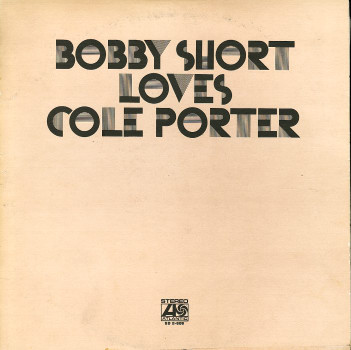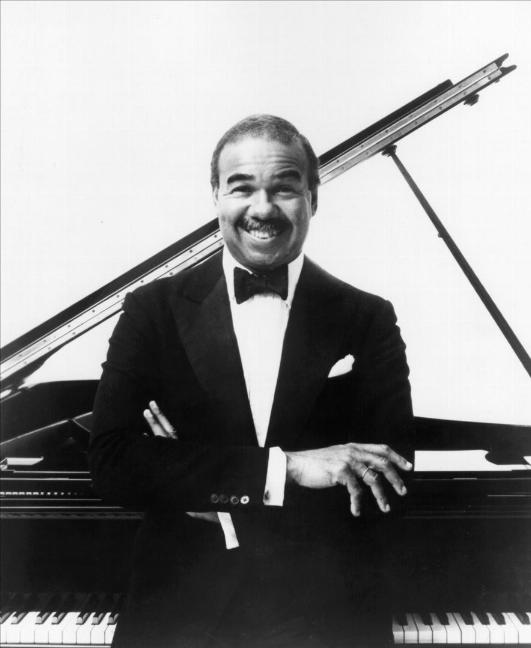Various forms of the records-that-changed-my-life meme have been making the rounds lately, so I came up with my own version, which I call “The Twenty-Five Record Albums That Changed My Life.” I’m writing about one of these albums each weekday in the rough order in which I first heard them.

My father didn’t care for musicals. He owned no original-cast albums, not even South Pacific, and except for The Wizard of Oz, we never watched any movie musicals on TV. As a result, I managed to graduate from high school without knowing much of anything about musicals as a theatrical genre, which is somewhat unusual for a drama critic.
To be sure, I’d appeared in three Smalltown Little Theater musical-comedy productions, once as a singer and twice as an instrumentalist, but the shows on which I worked were Oliver!, Fiddler on the Roof, and The Fantasticks, all of which I loved doing but none of which caused me to fall in love with musicals for their own sake. My high-school drama club only did plays, and the sole musical that I saw mounted professionally prior to going to college was 1776, whose road-show production I caught in St. Louis on a high-school field trip. For me, George Gershwin was the composer of Rhapsody in Blue and Cole Porter was nobody at all—until I discovered cabaret.
My Aunt Suzy, a voluntary spinster who divorced her alcoholic husband and thereafter doted on her nieces and nephews, loved to give all of us such presents as she could afford. The best gift she ever gave me was a subscription to Stereo Review, a now-defunct audio magazine with a first-rate record-review section whose critics, among them Chris Albertson, Noel Coppage, Richard Freed, David Hall, Bernard Jacobson, George Jellinek, Igor Kipnis, Irving Kolodin, Paul Kresh, Rex Reed, Peter Reilly, Steve Simels, Eric Salzman, Lester Trimble, and Joel Vance, were men of astonishingly eclectic tastes. It was in Stereo Review’s wide-ranging pages that I first read about Captain Beefheart, William Bolcom, Pierre Boulez, Company, Bill Evans, Dietrich Fischer-Dieskau, Percy Grainger, the Grateful Dead, the Guarneri Quartet, Josef Hofmann, Hot Tuna, Jethro Tull, Scott Joplin, Leo Kottke, Joni Mitchell, the Mothers of Invention, Randy Newman, Harry Nilsson, Linda Ronstadt, Dmitri Shostakovich, Bessie Smith, George Szell, James Taylor, Johnny Winter—and Bobby Short, who until his death in 2005 was the most beloved of all New York cabaret singers.
Rex Reed, who is, amazingly, still around, wrote a piece about Short for the February 1972 issue occasioned by the release of Bobby Short Loves Cole Porter, a double album containing twenty-two of Porter’s best songs. I read it with the closest possible attention. It started out like this:
One of the measures of one kind of sophistication in New York these days is the number of late-hour visits you pay each week to the elegant Café Carlyle. It is there that the singer-pianist nightbird called Bobby Short has his grand-piano perch, from which he plays and sings all the songs worth hearing more than once, sipping champagne the while into the small hours. Everybody who is (or wants to be) anybody comes to hear Bobby harvest his organically grown crop of Tin Pan Alley history, just as if the heavily polluted contemporary musical disaster area didn’t exist.
I didn’t yet know what the phrase “cabaret music” meant, but every other word of that review rang a bell with me, since I was just barely old enough to have started to imagine what it might feel like to be—forgive me—sophisticated.
I had recently discovered a Chicago store called Rose Records that sold albums of all kinds by mail, so I sent off a check at once and, a week or two later, received in the mail a package containing Bobby Short Loves Cole Porter, which was everything Reed said it was and more. I’d never heard anything quite like the first track, “Rap Tap on Wood,” and I spent the next hour riveted by my first hearings of such Porter classics as “At Long Last Love,” “I’ve Got You on My Mind,” “Just One of Those Things,” and “Why Shouldn’t I?” Thanks to Stereo Review, I had miraculously discovered the ne plus ultra of sophistication, a singer-pianist whose arch, amused tenor was the ideal instrument for bringing Porter’s arch, amused songs to life.

It wasn’t until I went off to school in Kansas City and started seeing performances by Broadway road-show companies, however, that I discovered that the songs I had learned from Short, Mabel Mercer, and the other singers whose albums I obtained from Rose Records came from Broadway musicals and thus had theatrical contexts of which I had hitherto been innocent. In time I came to love musicals and to spend many hours seeing them in the theater, though it wasn’t until years later that writing about them, first for the Washington Post and then for The Wall Street Journal, became an important part of my professional life.
Long before then, though, I had brought off a bonafide miracle: I went on a week-long college field trip to Manhattan. My fellow students and I went to the Metropolitan Museum of Art and the Museum of Modern Art, three Broadway shows, and a performance by the Metropolitan Opera, and I went to the Café Carlyle all by myself on my night off to hear Bobby Short, an adventure that I described at length a quarter-century later in a memoir of my childhood and youth:I booked a table for one and turned up half an hour before show time, blissfully ignorant of the fact that the Café Carlyle is an elegant watering hole intended for well-to-do New Yorkers, not teenage boys in ill-fitting black suits.
Not being much of a drinker, I decided to consume my minimum by having a late supper at my tiny table. I tore into my shrimp cocktail with gusto, unaware that anything was wrong until I put down my fork, looked around, and saw that no one else in the room was eating. I might well have died of embarrassment had it not been for the fact that Bobby Short, formerly of Danville, Illinois, spotted me for an out-of-towner the moment he walked through the door and came straight to my table to say hello, an act of kindness for which I am still grateful. I talked about it for weeks, though I knew only three or four people who knew who Bobby Short was, which took most of the starch out of the story after the first few tellings.
I never went back to hear Short at the Carlyle again —some memories are too perfect to be tampered with—but I still listen to his records, Bobby Short Loves Cole Porter in particular, with a mixture of pleasure and nostalgia that remains to this day as heady as a glass of very, very dry champagne.
(To be continued)
* * *
Bobby Short sings Cole Porter’s “Rap Tap on Wood,” accompanied by Beverly Peer on bass and Dick Sheridan on drums:
Bobby Short sings Cole Porter’s “I Get a Kick Out of You” live at the Café Carlyle:
* * *
To read about album #1, go here.
To read about album #2, go here.
To read about album #3, go here.
To read about album #4, go here.
To read about album #5, go here.
To read about album #6, go here.
To read about album #7, go here.
To read about album #8, go here.
To read about album #9, go here.
To read about album #10, go here.
To read about album #11, go here.
To read about album #12, go here.
To read about album #13, go here.
To read about album #14, go here.
To read about album #15, go here.
To read about album #16, go here.
To read about album #17, go here.
To read about album #18, go here.
To read about album #19, go here.
To read about album #20, go here.
